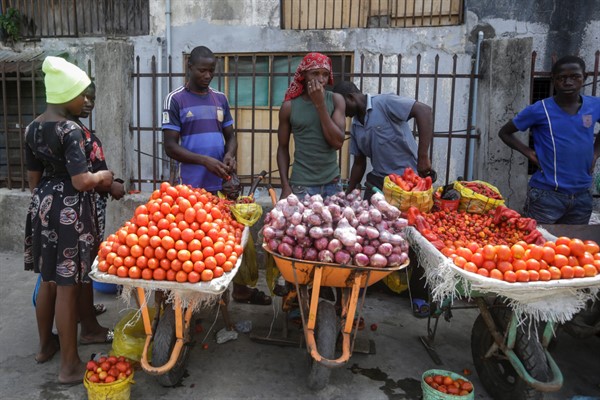Given the enormous impact of the coronavirus pandemic on global public finances, it is hardly surprising that cash-strapped governments across Africa—from Nigeria, Ghana and Cameroon to Kenya, Uganda and Zimbabwe—are experimenting with a range of tax increases to broaden state revenues. That, in turn, has put the spotlight on tax collection across Africa more broadly.
A recent Financial Times article discussing Nigeria’s paltry formal revenue collection rates is emblematic of the usual coverage of the issues involved, which are recurring topics of discussion on social media and in other public arenas, including among prospective candidates in Nigeria’s upcoming presidential election. But while the question of how to equitably raise domestic resources to support human development and prosperity across Africa is a deeply important one, the terms of the prevailing debate continue to leave much to be desired.
While African countries were spared some of the worst excesses of the health effects of the pandemic compared to other parts of the world when it comes to the number of infections and deaths, the impact on their already strained public finances has been considerable. State coffers have taken a hit due to supply and demand shocks caused by the pandemic, reducing both export earnings and domestic tax revenues. Local sources of financing—including tax and nontax revenues, which were already modest before the onset of the pandemic—are expected to continue to contract in the near term.

